Officials
Vice Rector for IT and Quality Assurance
The Vice Rector for IT and Quality Assurance is responsible for deputizing for the Rector in cases of absence, conflict of interest, or temporary vacancy of the Rector’s position.
The main responsibilities and authority of the Vice Rector for IT and Quality Assurance include:
Directly supervising the head of the IT Office, they are particularly responsible for:
- Operating and developing the IT infrastructure,
- Overseeing and developing the university’s website,
- Coordinating software procurement, licenses, and internal and external university software development,
- Operating the university’s voting and survey system,
- Establishing, operating, and developing the university’s information and communication, as well as monitoring systems,
- Developing the University’s IT strategy and coordinating the concepts for the development of the university’s IT system.
Directly supervising the Quality Assurance Officer, they are particularly responsible for:
- Coordinating the work of the faculty quality assurance committees,
- Organizing and coordinating university surveys,
- Organizing and coordinating student surveys,
- Organizing and coordinating preparations for monitoring and accreditation procedures,
- Coordinating the development, monitoring, and implementation of the institutional development plan,
- Liaising with regional development committees, institutions, and social organizations involved in the implementation of development programs,
- Coordinating institutional accreditation processes and maintaining contact with the Hungarian Accreditation Committee,
- Supervising the activities of the Quality Management Committee, the IT Committee, and quality management coordinators.
Vice Rector for Education
The Vice Rector for Education, under the authority delegated by the Rector, is responsible for developing the University’s educational strategy and improving the quality of educational activities.
The main responsibilities and authority of the Vice Rector for Education include:
- Managing university-level tasks related to the coordination of educational activities, overseeing, directing, and supervising the administration,
- Preparing content for drafts and amendments of university regulations concerning education,
- Developing and organizing the implementation of concepts for improving and modernizing the institution’s educational activities, and directing the development of curricular guidelines,
- Coordinating university-level preparations for official administrative tasks for submission to the Educational Authority, drafting proposals in consultation with the requesting organizational units, and presenting them to the Senate,
- Coordinating and aligning the University’s recruitment activities and programs, as well as skills development and communication programs supporting admission to higher education,
- Overseeing university-level tasks related to the admission process,
- Deciding on admission appeals within the Rector’s delegated authority,
- Directing activities related to the recruitment of foreign students and overseeing the organization of foreign-language educational programs for international students, including developing admission regulations for these programs and supervising the process,
- Supervising tasks related to educational material provision and overseeing the operation of the Neptun Student Information and Financial System,
- Directing the quality evaluation system related to educational activities, particularly regarding student evaluations of teaching and measuring faculty performance,
- Liaising with the University Student Government and overseeing the legal functioning of the University Student Government,
- Ensuring compliance with the University’s Student Regulations (HKR),
- Coordinating and overseeing the development of international joint programs and dual degree programs,
- Supervising the operation of the University’s dormitory,
- Overseeing the operation of the Thesis Portal,
- Preparing and reviewing educational requirements and regulations,
- Coordinating and overseeing alumni events and activities at the University,
- Exercising professional supervision over student services and coordinating their professional activities.
Vice Rector for Research
The Vice Rector for Research at Obuda University, Prof. Dr. László Gulácsi, oversees institutional-level research, scientific, and international activities of the university. Under the authority delegated by the Rector, the Vice Rector is responsible for formulating the University’s strategy for scientific research, development, and innovation, raising the standard of R&D, and fostering the development of international relations, ensuring compliance with relevant legislation.
Key responsibilities of the Vice Rector for Research include developing the university’s domestic and international research, scientific, and innovation strategies, overseeing scientific activities, including managing university-level R&D&I and publication activities, and supervising the related data management and reporting. The Vice Rector also chairs and supervises the activities of the University’s Scientific Council.
Other responsibilities include:
- Coordinating and supervising university-level research grant, innovation, and basic research activities,
- Directing the quality evaluation system for scientific activities,
- Overseeing university-level student scientific research activities,
- Managing the university’s research, development, and innovation (R&D&I) and publication activities and ensuring proper data management,
- Supervising the strategic matters related to scholarships for scientific and research purposes,
- Coordinating the scientific conferences organized by faculties,
- Overseeing the professional management of university events celebrating the Hungarian Science Day,
- Managing the institutional grant system supporting participation in international and national conferences,
- Ensuring the balance between the financial possibilities and obligations within their supervision,
- Effectively managing scientific processes with built-in pre- and post-supervisory checks,
- Coordinating tasks related to scientific training and dissemination activities,
- Supervising compliance with internal and external travel regulations,
- Overseeing strategic issues related to library and content development services,
- Directing the University’s Scientific Council,
- Liaising with the University Doctoral Student Council and overseeing its legal operation.
The Vice Rector for Research also collaborates on the development of the University’s Strategy and Institutional Development Plan, supervises the central academic administration of doctoral schools, and handles student complaints and appeals related to doctoral studies. At the Rector’s request, the Vice Rector for Research represents the Rector at university and external protocol events, conferences, and meetings related to scientific and research matters.
Vice Rector for Innovation
The primary responsibility of the Vice Rector for Innovation is to organize and develop the University’s social, economic, and technical innovation and promote the utilization of the University’s intellectual property in business innovation activities.
Key responsibilities of the Vice Rector for Innovation include:
- Supervising the University’s activities related to intellectual property rights,
- Coordinating and overseeing the University’s activities related to research utilization, innovation, industry, and business engagement at an institutional level,
- Leading and directing the Innovation Office,
- Identifying, evaluating, and coordinating strategic initiatives that offer significant industrial and business advantages to the University,
- Coordinating tasks related to the establishment and maintenance of Science and Technology/Innovation Parks,
- Overseeing the University’s scientific and grant activities, excluding mobility grants, at an institutional level,
- Aligning the activities of the Grant Office with the University’s strategy,
- Supervising and directing the University’s research utilization and grant activities, considering international best practices,
- Maintaining professional relationships and close collaboration with Initium Venture Labs Zrt., a knowledge transfer company established by the University, while representing the University’s ownership interests.
Vice Rector for Sustainability and Strategic Development
The Vice Rector for Sustainability and Strategic Development is primarily responsible for overseeing, organizing, and coordinating the University’s tasks related to sustainability and major development projects at an institutional level, under the authority delegated by the Rector.
Key responsibilities include:
- Developing the University’s sustainability strategy and overseeing related activities,
- Preparing content for draft regulations and amendments concerning university sustainability, and making recommendations for the relevant sections of the Institutional Development Plan,
- Developing and coordinating the implementation of concepts for the sustainability and modernization of the university’s built environment,
- Supervising the ESG (Environment, Social, Governance) principles in connection with the development and tasks related to the university’s built environment, in collaboration with the University’s Sustainability (GreenMetric) Committee and the Directorate-General for Economic Affairs,
- Supervising the work of the Sustainability (GreenMetric) Committee established under ESG principles, which coordinates and supports the University’s sustainability-related activities and promotes their development,
- Coordinating the university-level tasks related to sustainability,
- Coordinating and overseeing tasks related to major development projects at the University, as determined by the Rector,
- Strengthening the University’s social engagement related to education and research, fostering and expanding the University’s social connections, and involving local and regional institutions, civil and non-profit organizations, and the public in university life.
Deans
The Dean is the head of the faculty and, with regard to employment matters, reports to the Rector.
The Dean’s responsibilities and authority include, among other things, representing the university and the faculty within the scope of authority delegated by the Rector, managing, coordinating, and supervising educational, scientific research, administrative, and budgetary activities within the faculty, and overseeing the budget allocations, assets, and other resources available to the faculty, in accordance with laws and university regulations.
The detailed responsibilities and authority of the Dean are outlined in the University’s Organizational and Operational Regulations.
Deans of Obuda University
- Alba Regia Faculty (AMK): Prof. Dr. György Györök
- Donát Bánki Faculty of Mechanical and Safety Engineering (BGK): Prof. Dr. Zoltán Rajnai
- Kandó Kálmán Faculty of Electrical Engineering (KVK): Dr. József Kopják
- Keleti Károly Faculty of Business and Management (KGK): Dr. habil. Mónika Garai-Fodor
- John von Neumann Faculty of Informatics (NIK): Dr. György Eigner
- Sándor Rejtő Faculty of Light Industry and Environmental Engineering (RKK): Dr. habil. László Koltai
- Miklós Ybl Faculty of Architecture: Prof. Dr. Anthony Gall
Director-General of the University Research and Innovation Center (EKIK)
The EKIK operates as an independent organizational unit, conducting and providing scientific research, development, and innovation activities across various fields, while also fulfilling educational tasks.
The Director-General of EKIK is responsible for overseeing these activities.
EKIK carries out its tasks through the following units under the leadership of Dr. Zsombor Zrubka:
- The EKIK Office,
- The Cyber-Medical Competence Center,
- And the research centers.
Director-General for Economic Affairs
The Director-General for Economic Affairs at Obuda University is Botond Fehér, who organizes the administrative operations of the General Directorate. He plans the budgetary and other central financial resources in collaboration with the university and faculty leadership. He is responsible for the financial execution of the university’s payroll management, labor records, and reporting. Additionally, he organizes and oversees planning, financial management, accounting, and the documentation system that underpins these processes, as well as related administrative operations. He establishes the framework for commitment and disbursement procedures, ensuring the implementation and compliance with financial and economic regulations. The Director-General also provides financial administrative services to organizational units to support their revenue-generating activities and exercises professional oversight of the financial operations of independent units.



